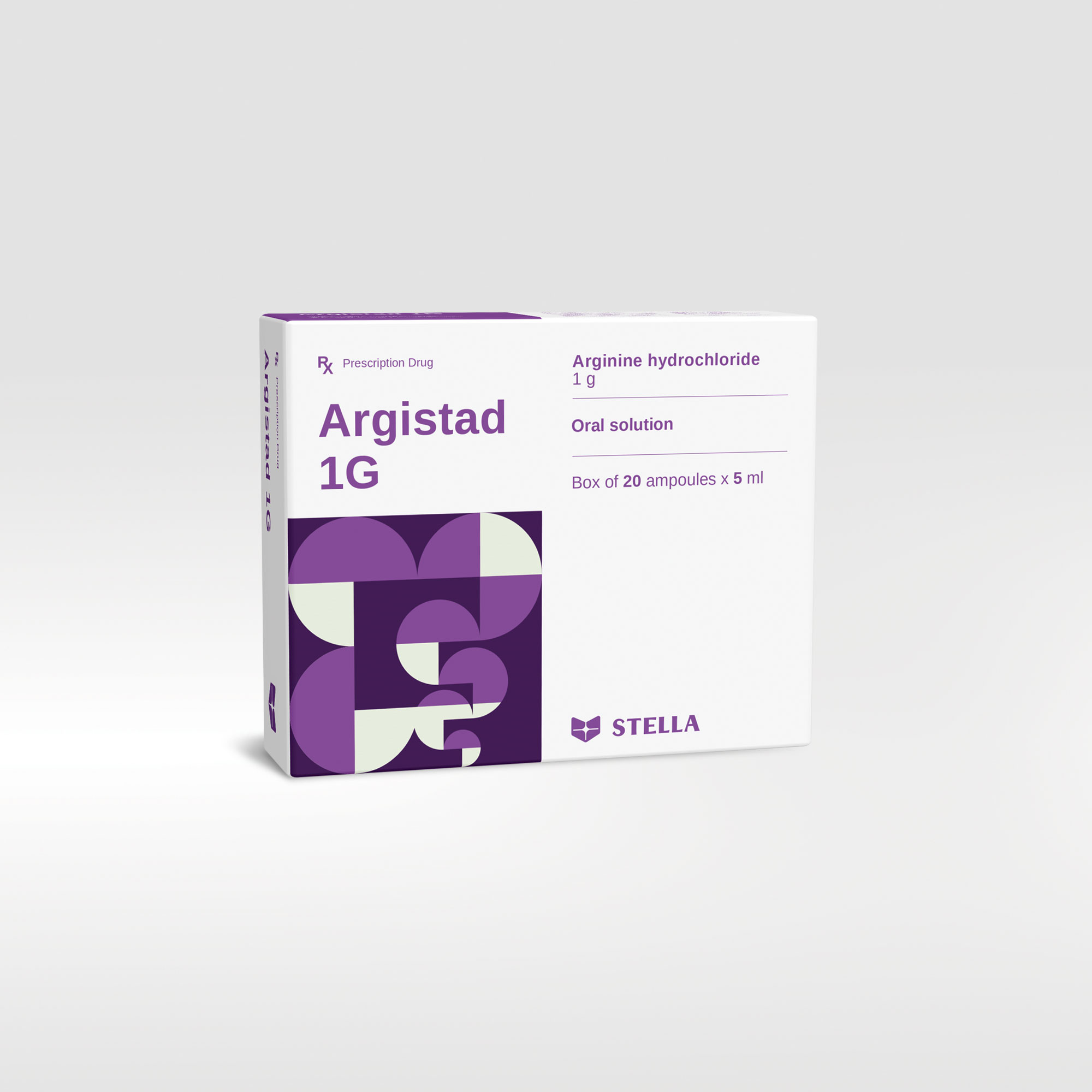Argistad 1G Rx
Argistad 1G contains arginine which is an essential amino acid in the urea cycle of patients with deficiency of the enzymes NAGS, CPS, OTC, ASS or ASL. Administration of arginine hydrochloride in patients with such disorders restores blood arginine concentrations and helps to prevent protein catabolism.
| Pack size | Box of 20 ampoules x 5 ml. Box of 1 bottle x 125 ml |
| Shelf-life | 24 months |
| Composition | Arginine hydrochloride |
| Dosage forms and strengths | Oral solution: 1 g/ 5 ml |
Product code :


